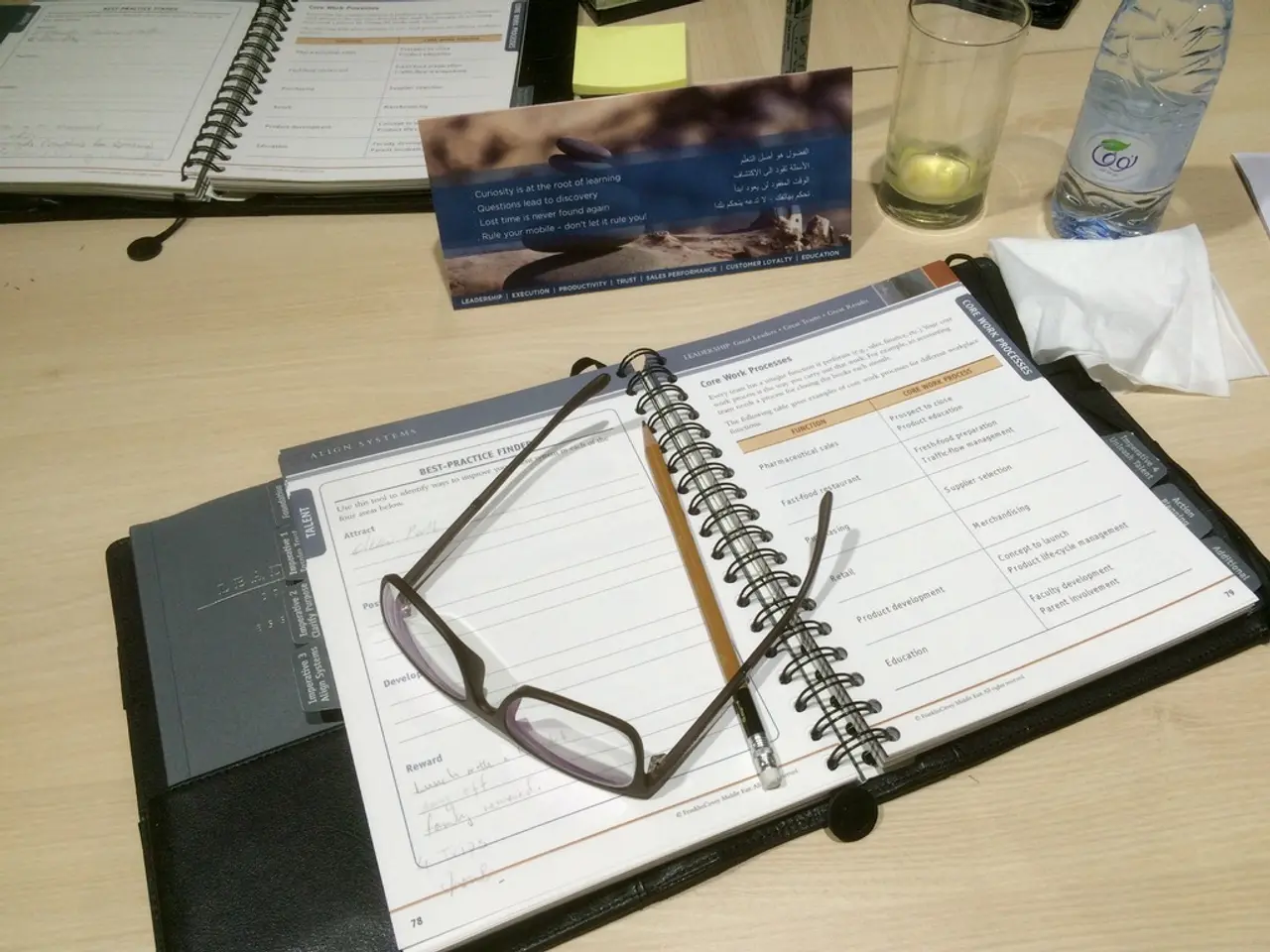Telomere Degradation and Lifestyle Choices in the Aging Process
In the realm of biology, aging is a natural process of decline, with the pace varying due to multiple factors. One of the key players in this process is the humble telomere, located at the ends of our chromosomes. These protective caps shorten over time, serving as a marker for biological aging.
Telomeres truly reflect our lifestyle, whether on Earth or in space, making it all the more important to pay attention to our choices and their impact on our aging process. A study published in "Frontiers in Physiology" suggests that regular endurance training can have a protective effect on telomere length and potentially slow down the aging process.
On Earth, a balanced diet appears to play a crucial role in preserving telomeres. The Mediterranean diet, rich in fruits, vegetables, nuts, whole grains, and olive oil, appears to have a protective effect on oxidative stress and chronic inflammation in the body, potentially contributing to longer telomeres. Omega-3 fatty acids, found in fatty fish and plant seeds, nuts, and oils, as well as corresponding dietary supplements, may help maintain telomeres. Vitamin D, as shown by a recent study, also helps maintain telomeres.
Quitting smoking, avoiding stress, getting enough sleep, maintaining social contacts, and maintaining a healthy body weight are all suggested ways to protect telomeres. Research like this is not only beneficial for space travel but also potentially for people on Earth, for example, through the development of radiation protection devices or progress in anti-aging research.
The attention on telomeres extends beyond Earth, with space agencies also taking a keen interest. Research on the effects of space travel on telomeres shows that spaceflight accelerates cellular aging by impairing telomere maintenance, leading to faster loss of these protective DNA caps, increased mutation risk from space radiation, and reduced regenerative capacity of stem cells.
A study on the NASA twin study, published in "Science" in 2019, found that astronaut Scott Kelly's telomeres lengthened in space, but shrank again after his return and were even shorter than before in some cases. Short stays in space can cause telomeres to lengthen, as shown in a study on the "Inspiration4" mission by SpaceX. However, longer telomeres in space may increase the risk of cancer due to extended lifespan or immortality of cells that have suffered DNA damage from space radiation.
Elizabeth Blackburn, a Nobel laureate in medicine, compared telomeres to the ends of laces, stating that longer telomeres lower the likelihood of the lace fraying. In humans, this means that as we age, the telomeres in all body cells become shorter, contributing to most age-related diseases.
Researchers refer to telomeres as a "biological memory" of cells. Susan Bailey, a researcher, speculates that radiation kills lymphocytes with short telomeres in space, causing more stem or precursor cells with longer telomeres to be released into the circulation.
Current key research on the effects of space travel on telomeres indicates the need for further study to protect astronauts during long missions. This research is not just beneficial for space travel but also potentially for people on Earth, providing insights into the complexities of aging and offering opportunities for advancements in anti-aging research.
Read also:
- Peptide YY (PYY): Exploring its Role in Appetite Suppression, Intestinal Health, and Cognitive Links
- Toddler Health: Rotavirus Signs, Origins, and Potential Complications
- Digestive issues and heart discomfort: Root causes and associated health conditions
- House Infernos: Deadly Hazards Surpassing the Flames








